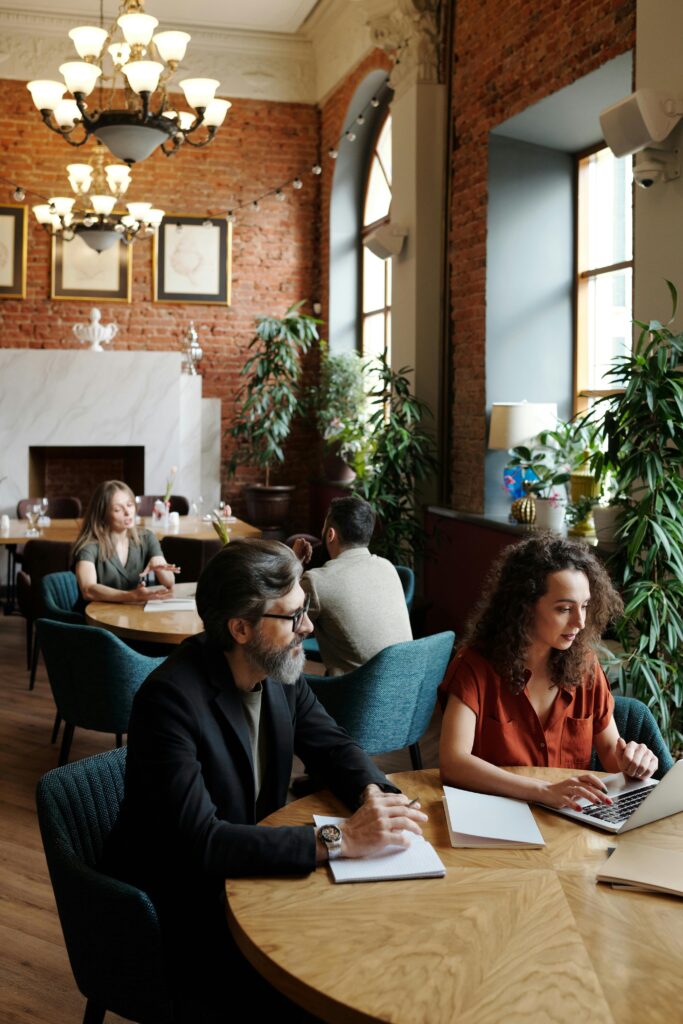Business
Cinema Café: Blending Food, Films, and Lifestyle ( A Complete Guide)
Introduction: What is a Cinema Café?
Imagine walking into a cozy café where the aroma of freshly brewed coffee mixes with the excitement of a movie about to begin. That’s the essence of a cinema café – a hybrid space that combines the social atmosphere of a café with the immersive entertainment of cinema. Unlike traditional cinemas or coffee shops, cinema cafés provide a holistic lifestyle experience where food, drinks, and films come together. Over the past few years, this concept has gained popularity globally, attracting entrepreneurs, foodies, cinephiles, and young audiences looking for unique hangout spots.
The Lifestyle Experience of a Cinema Café
- More Than Just Movies: Cinema cafés are not just about screening the latest blockbusters. Many showcase independent films, documentaries, classics, or even live-streamed events. The idea is to create a cultural hub where people connect through cinema.
- Food Meets Film: Unlike regular theaters with popcorn and soda, cinema cafés often serve gourmet meals, coffee, desserts, or even themed food items inspired by the films being shown. Imagine watching an Italian classic while enjoying authentic pasta or sipping Turkish coffee during a foreign film screening.
- Cozy, Intimate Setting: Cinema cafés usually feature smaller auditoriums or lounge-style seating, offering comfort and an intimate atmosphere compared to traditional multiplexes. Sofas, bean bags, and warm lighting enhance the homely vibe.
- Community and Events: Many cinema cafés host open-mic nights, Q&A sessions with filmmakers, book launches, or cultural discussions. This makes them lifestyle centers rather than just entertainment venues.
The Business Side of Cinema Cafés
Cinema cafés are not just lifestyle spots they’re also lucrative business opportunities when managed strategically.

1. Revenue Streams:
- Ticket Sales: Entry for films, special screenings, or events.
- Food & Beverage Sales: A significant portion of profits comes from café operations, offering everything from coffee and snacks to full-course meals.
- Memberships & Loyalty Programs: Many cinema cafés offer subscription models where members get unlimited or discounted access.
- Event Hosting: Renting out space for private screenings, corporate events, or cultural festivals.
- Merchandise: Film-related products, books, or café merchandise.
2. Target Audience:
- Young professionals seeking trendy hangouts.
- Students and cinephiles looking for cultural experiences.
- Families who want a relaxed dining + entertainment combo.
- Tourists exploring unique local attractions.
3. Marketing Strategies:
- Social Media Presence: Instagram-worthy interiors and themed events help attract younger audiences.
- Collaborations: Partnering with film festivals, local artists, or culinary brands.
- Loyalty Programs: Discounts for regular visitors to build a community.
- Word of Mouth: Since the concept is experiential, happy customers become ambassadors.
4. Investment & Setup:
Starting a cinema café involves initial costs for venue rental, projection equipment, licenses, and kitchen setup. However, the hybrid model means there are multiple income sources to sustain the business.
Popular Cinema Cafés Around the World
- Alamo Drafthouse (USA): Known for its strict no-phone policy, delicious food, and curated film screenings.
- Electric Cinema (London, UK): Offers plush seating, cocktails, and gourmet dining while watching movies.
- Cafe Kino (Bristol, UK): Independent café-cinema with vegan food and community-driven screenings.
- Prithvi Theatre Café (Mumbai, India): Combines theatre, indie films, and a lively café culture.
- Cinema Akil (Dubai, UAE): An independent cinema café focusing on art-house and world cinema.
Challenges of Running a Cinema Café
- Licensing & Permissions: Obtaining film screening rights and food service licenses can be complex.
- Competition: Traditional cinemas and cafés may attract the same customer base.
- Operational Costs: Balancing costs of film projection, café staff, and quality food supplies.
- Changing Consumer Behavior: Adapting to streaming platforms and shifting entertainment habits.
Solutions:
- Focus on experience over convenience (streaming can’t replace the community vibe).
- Innovate with themed nights, unique menus, and cultural programming.
- Leverage technology with mobile apps for reservations, orders, and loyalty points.
Future of Cinema Cafés
The future of cinema cafés looks promising, especially as audiences crave personalized and immersive experiences. Trends shaping the industry include:
- Technology Integration: VR screenings, interactive menus, and AI-driven film recommendations.
- Sustainability: Eco-friendly cafés using reusable cutlery, organic menus, and zero-waste policies.
- Hybrid Cultural Spaces: Expanding beyond cinema to include gaming nights, live concerts, or digital art exhibitions.
- Niche Branding: Targeting specific audiences, such as anime lovers, classic film enthusiasts, or international cinema fans.
FAQs About Cinema Cafés
Q1: What makes cinema cafés different from regular cinemas?
They combine gourmet dining and café culture with movie screenings, offering a more intimate and social experience.
Q2: Are cinema cafés profitable?
Yes, when managed well, multiple revenue streams like food sales, memberships, and private events make them profitable.
Q3: Can small towns support cinema cafés?
Yes, especially if they position themselves as cultural hubs for local communities.
Q4: Do cinema cafés only show indie films?
Not always. While many focus on indie or classics, some also screen mainstream movies with a twist.